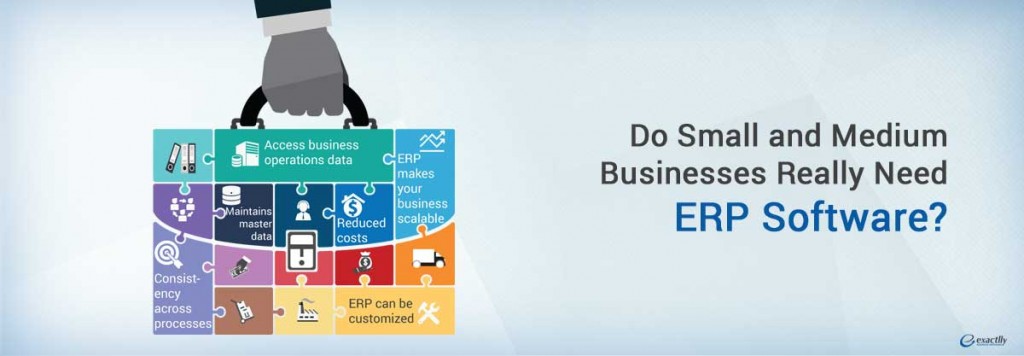Navigating the ERP Landscape for Small Businesses: A Comprehensive Guide
As a small business owner, you’re constantly seeking ways to streamline operations, enhance efficiency, and gain a competitive edge. An enterprise resource planning (ERP) system can be your secret weapon in achieving these goals. However, choosing the right ERP system for your unique needs can be a daunting task.
What is an ERP System?
An ERP system is a comprehensive software suite that integrates various business functions into a single, centralized platform. It provides a real-time, holistic view of your entire organization, enabling you to manage and monitor every aspect of your operations from a single source.
Benefits of ERP Systems for Small Businesses
- Streamlined Operations: ERP systems automate and integrate business processes, eliminating manual tasks and reducing errors.
- Enhanced Efficiency: By centralizing data and automating workflows, ERP systems free up your team to focus on strategic initiatives.
- Improved Decision-Making: Real-time access to accurate data empowers you with the insights needed for informed decision-making.
- Increased Collaboration: ERP systems foster collaboration across departments, breaking down silos and improving communication.
- Enhanced Customer Service: With a comprehensive view of customer interactions, ERP systems enable you to provide personalized and efficient service.
- Reduced Costs: By optimizing operations and improving efficiency, ERP systems can significantly reduce your operating costs.
- Scalability: ERP systems are designed to grow with your business, providing the flexibility to adapt to changing needs.

Disadvantages of ERP Systems for Small Businesses
- High Cost: ERP systems can be expensive to implement and maintain, especially for small businesses with limited budgets.
- Complexity: ERP systems are complex and require specialized knowledge to implement and operate effectively.
- Time-Consuming Implementation: ERP implementation can be a lengthy and disruptive process, requiring significant time and resources.
- Limited Customization: While ERP systems offer a wide range of functionality, they may not always be able to fully meet the unique needs of small businesses.
- Integration Challenges: Integrating ERP systems with existing software and systems can be complex and costly.
 .
.
Essential Features to Consider
When selecting an ERP system for your small business, consider the following essential features:
- Financial Management: Manage accounts payable, accounts receivable, cash flow, and financial reporting.
- Supply Chain Management: Track inventory, manage suppliers, and optimize logistics.
- Customer Relationship Management (CRM): Manage customer interactions, sales, and marketing campaigns.
- Project Management: Plan, track, and manage projects effectively.
- Human Resource Management (HRM): Manage employee data, payroll, and benefits.
- Reporting and Analytics: Generate customizable reports and dashboards for data-driven decision-making.
Top ERP Systems for Small Businesses
The market offers a wide range of ERP systems tailored to the needs of small businesses. Some of the top contenders include:
- NetSuite: A cloud-based ERP system with a comprehensive suite of features.
- SAP Business One: An on-premise ERP system designed specifically for small businesses.
- Oracle NetSuite: A cloud-based ERP system offering a wide range of industry-specific solutions.
- Sage Intacct: A cloud-based ERP system known for its financial management capabilities.
- Microsoft Dynamics 365 Business Central: A cloud-based ERP system with a focus on ease of use.
Choosing the Right ERP System for Your Business
The best ERP system for your small business will depend on your specific needs, budget, and resources. Consider the following factors when making your decision:
- Size and Industry: Choose an ERP system that is designed for the size and industry of your business.
- Functionality: Identify the essential features that your business requires.
- Cost: Determine your budget and ensure that the ERP system you choose fits within your financial constraints.
- Implementation Time: Consider the time and resources required for implementation and choose a system that can be implemented quickly and efficiently.
- Support: Ensure that the ERP vendor provides adequate support and training to ensure a successful implementation and ongoing operation.
Conclusion
Choosing the right ERP system for your small business can be a transformative decision. By carefully considering your needs, evaluating the features and benefits of different systems, and seeking professional advice if necessary, you can select an ERP system that will help you streamline operations, enhance efficiency, and gain a competitive edge. Remember, the best ERP system is the one that aligns seamlessly with your business goals and empowers you to achieve your full potential.


